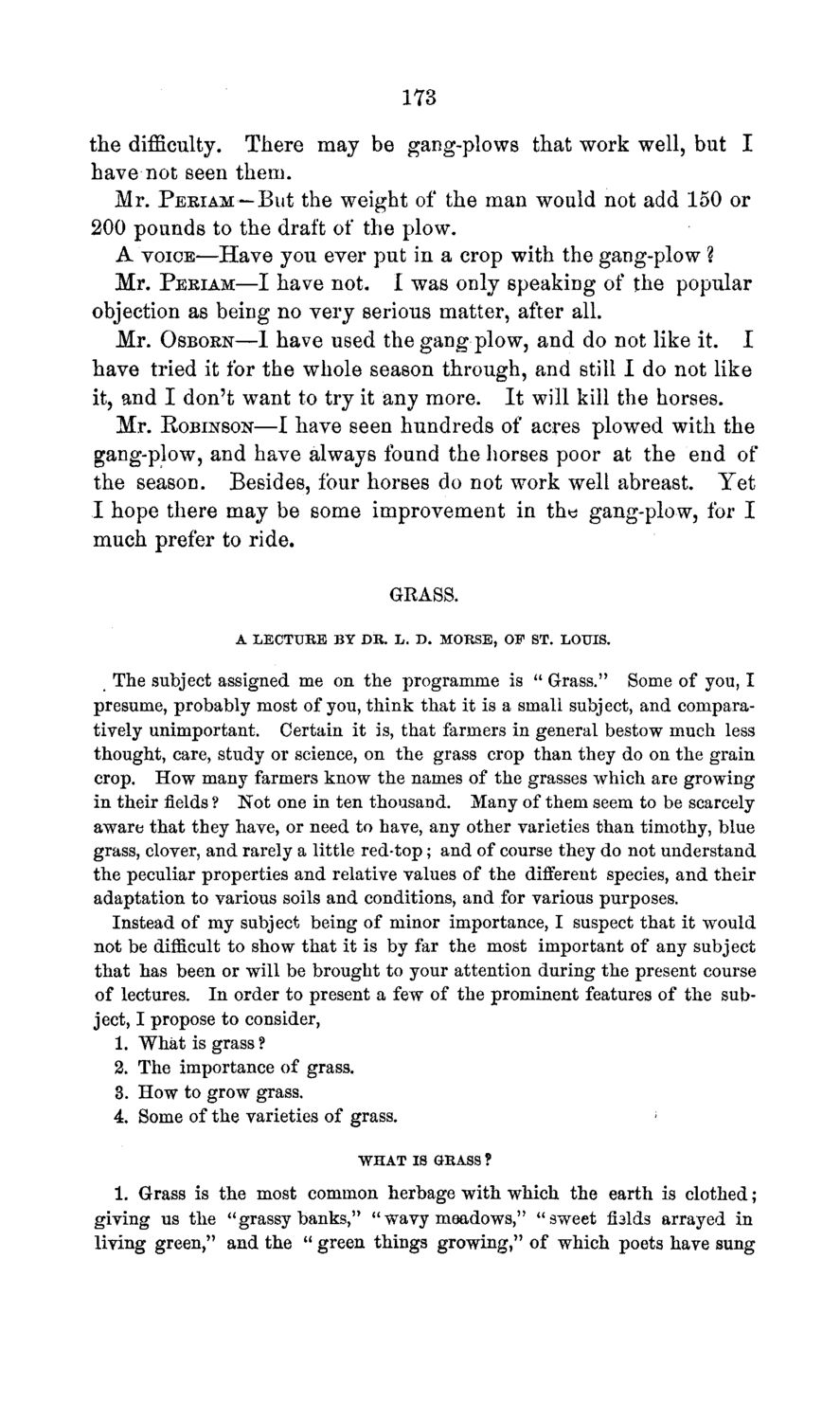| |
| |
Caption: Board of Trustees Minutes - 1869
This is a reduced-resolution page image for fast online browsing.

EXTRACTED TEXT FROM PAGE:
173 the difficulty. There may be gang-plows that work well, but I have not seen them. Mr. PEKIAM—But the weight of the man would not add 150 or 200 pounds to the draft of the plow. A VOICE—Have you ever put in a crop with the gang-plow ? Mr. PERIAM—I have not. I was only speaking of the popular objection as being no very serious matter, after all. Mr. OSBORN—1 have used the gang plow, and do not like it. I have tried it for the whole season through, and still I do not like it, and I don't want to try it any more. I t will kill the horses. Mr. ROBINSON—I have seen hundreds of acres plowed with the gang-plow, and have always found the horses poor at the end of the season. Besides, four horses do not work well abreast. Yet I hope there may be some improvement in the gang-plow, for I much prefer to ride. GRASS. A L E C T U R E B Y D R . L . D . MORSE, O F ST. LOUIS. The subject assigned me on the programme is " Grass.'' Some of you, I presume, probably most of you, think that it is a small subject, and comparatively unimportant. Certain it is, that farmers in general bestow much less thought, care, study or science, on the grass crop than they do on the grain crop. How many farmers know the names of the grasses which are growing in their fields ? Not one in ten thousand. Many of them seem to be scarcely aware that they have, or need to have, any other varieties than timothy, blue grass, clover, and rarely a little red-top; and of course they do not understand the peculiar properties and relative values of the different species, and their adaptation to various soils and conditions, and for various purposes. Instead of my subject being of minor importance, I suspect that it would not be difficult to show that it is by far the most important of any subject that has been or will be brought to your attention during the present course of lectures. In order to present a few of the prominent features of the subject, I propose to consider, 1. What is grass ? 2. The importance of grass. 3. How to grow grass. 4. Some of the varieties of grass. < W H A T I S GRASS ? 1. Grass is the most common herbage with which the earth is clothed ; giving us the "grassy banks," "wavy meadows,'' "sweet fialds arrayed in living green," and the " green things growing," of which poets have sung
| |